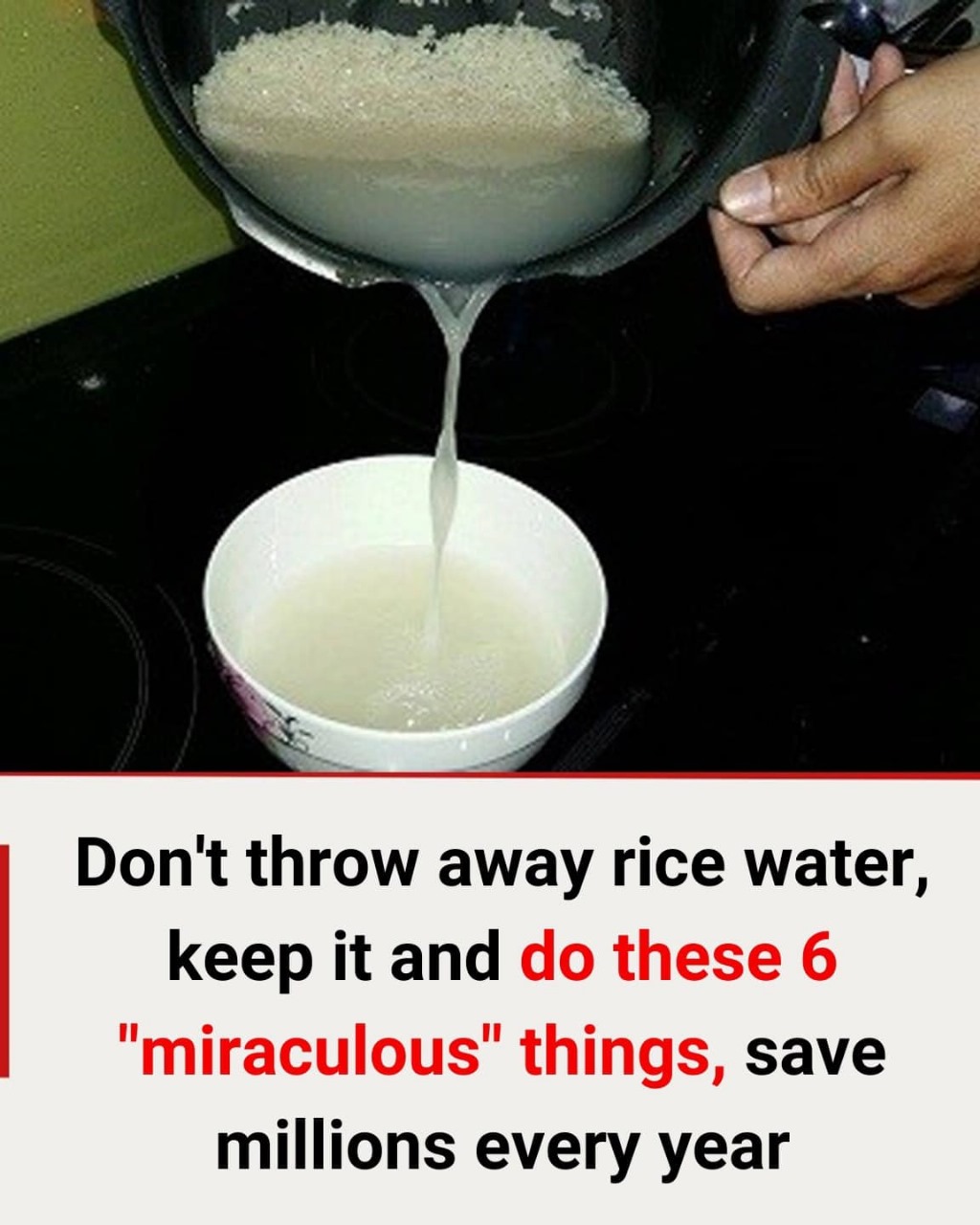Rice is a staple in many households worldwide, but did you know that the water left behind after rinsing or boiling rice—commonly known as rice water—is a treasure trove of benefits? Rich in vitamins, minerals, and antioxidants, rice water has been utilized for centuries in various cultures for its health, beauty, and household applications. Instead of discarding this nutrient-rich liquid, consider incorporating it into your daily routine through these six remarkable uses.
1. Natural Skin Toner and Cleanser
Rice water is renowned for its skin-enhancing properties, making it an excellent natural toner and cleanser. Packed with vitamins B and E, minerals, and antioxidants, it helps to tighten pores, reduce redness, and promote a radiant complexion.
How to Use:
- As a Toner: After cleansing your face, soak a cotton pad in rice water and gently apply it to your skin. Allow it to air dry, then follow with your regular moisturizer. This routine can help balance your skin’s pH levels and improve texture.
- As a Cleanser: Massage rice water onto your face in circular motions, then rinse with lukewarm water. This method can aid in removing impurities and excess oils.
Regular use may lead to a more even skin tone and a natural glow.
2. Hair Rinse for Strength and Shine
Incorporating rice water into your hair care regimen can result in stronger, shinier, and more manageable locks. The amino acids, vitamins, and minerals present in rice water nourish the scalp, strengthen hair roots, and improve overall hair health.
How to Use:
- Preparation: After shampooing, pour rice water over your hair, ensuring all strands are saturated. Gently massage your scalp and hair, leave it on for 5–10 minutes, then rinse thoroughly with water.
This practice, rooted in ancient traditions, has been linked to reduced hair breakage and enhanced elasticity.
3. Fertilizer for Plants
Rice water serves as an eco-friendly and cost-effective fertilizer for your plants. The residual starches and nutrients in rice water promote beneficial bacterial growth in the soil, enhancing plant health and growth.
How to Use:
- Watering Plants: Allow the rice water to cool to room temperature, then use it to water your indoor and outdoor plants. This can be done once a week to provide a gentle nutrient boost.
Be cautious not to overuse, as excessive starch can attract pests or lead to mold growth.
4. Soothing Agent for Skin Irritations
The anti-inflammatory properties of rice water make it an effective remedy for soothing skin irritations, including sunburns, rashes, and eczema.
How to Use:
- For Sunburns: Soak a clean cloth in cool rice water and apply it to the affected area for 10–15 minutes. The cooling effect can alleviate discomfort and reduce redness.
- For Rashes and Eczema: Gently apply rice water to the irritated skin using a cotton pad, let it dry, and rinse off with lukewarm water. Regular application may help in reducing inflammation and itching.
Always perform a patch test before applying rice water to larger skin areas to ensure compatibility.
5. Natural Cleaning Agent
Rice water can be utilized as a mild and eco-friendly cleaning solution for various household tasks.
How to Use:
- Cleaning Dishes: Use rice water to soak greasy dishes and utensils. The starch content helps to loosen grime, making it easier to clean.
- Polishing Surfaces: Apply rice water to glass surfaces or mirrors, then wipe with a clean cloth to achieve a streak-free shine.
This natural cleanser is gentle on the skin and free from harsh chemicals, making it a sustainable choice for household cleaning.
6. Culinary Uses
Incorporating rice water into your cooking can enhance the flavor and nutritional value of various dishes.
How to Use:
- Soup Base: Use rice water as a base for soups and stews to add a subtle thickness and a hint of rice flavor.
- Cooking Broth: Replace plain water with rice water when boiling vegetables or cooking grains to infuse additional nutrients into your meals.
This practice not only reduces waste but also enriches your culinary creations with the beneficial properties of rice.
Conclusion
Rice water is a versatile and valuable byproduct that offers numerous benefits across beauty, health, gardening, and household cleaning. By repurposing rice water, you can embrace a more sustainable lifestyle, reduce waste, and enjoy the natural advantages it provides. The next time you prepare rice, remember to save the water and explore these practical applications to enhance your daily life.

